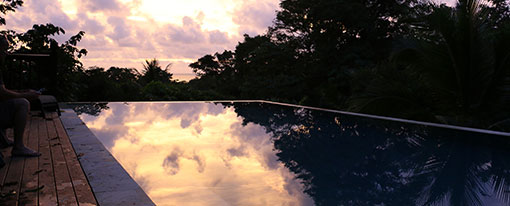Misleading Sales & Marketing Tactics, Fraudulent Hotel Bookings Cost Travelers 5.2 Billion in 2017
A new campaign promoting “smarter searching” on the part of American travelers has brought attention to a surprisingly serious issue in travel: fraudulent hotel booking transactions, which took $5.2 billion—that’s billion with a b—out of American pockets last year…
In a survey conducted by the American Hotel & Lodging Association (AHLA), which is behind the Search Smarter campaign, nearly a quarter (23%) of the people polled reported being misled by third-party resellers on the phone or online in 2017.
In addition to the $5.2 billion figure, that works out to about 28.5 million individual hotel stays ruined, or at best affected, by misleading information. $5.2 billion? On what? A fraudulent hotel booking transaction, as defined by this study, takes many forms.
Of the people who reported being misled in such a transaction: 46% were charged extra fees on their credit card 34% had a reservation lost and had to book another room, losing the cost of their original reservation 44% percent made a special room request that was not relayed to the hotel Of course, some of these people were defrauded in more than one of the above manners.
Need Page One Listings? Let Nelsonecom Help You With Search Engine Optimization And Marketing.
The common thread is the third-party hotel resellers, defined as parties unaffiliated with a hotel/hotels that sell hotel bookings. These third parties include groups that use shady tactics to mimic hotel websites and call centers. One example is Reservation Counter, LLC, which was accused by the FTC of misleading consumers into believing they were booking/speaking directly with a hotel as well as failing to disclose that a credit card would be charged immediately after booking instead of upon check-in. In December, the group settled a lawsuit and has had to amend its practices. Unsurprisingly, 70% of survey respondents said they support the action against Reservation Counter, LLC. But third-party hotel resellers also include the giant OTAs that we’ve all used, like Expedia, Priceline and Booking.com.
Though largely trustworthy, these groups act as middlemen and not on behalf on your chosen hotel directly.
“When you book directly with the hotel, the hotel is on the hook. When you book with a digital middleman, you’re on the hook,” according to AHLA’s President & CEO Katherine Lugar. Even if you find yourself continuing to book hotels with these OTAs, you should at least be aware of the risks inherent to this arrangement.
What can be done? The most important takeaway here is that you must be diligent when booking a hotel—and all travel arrangements—online or over the phone. Go directly through the hotel or a trusted travel agent whenever possible, and if you do use a big OTA (they do often have better prices, for a number of reasons often unfair to hotels), make sure that everything looks right before you book.
Call the hotel before you arrive to confirm your arrangements. All in all, you should Search Smarter.
“It’s easy and convenient to make travel arrangements online. Unfortunately, as online bookings have surged, so too have scams and deceptive behaviors,” said Lugar. “That’s why we encourage consumers to look before you book, slow down, and search smarter. Taking a few extra seconds to book directly with a hotel or a trusted travel agent can save time and money in the long run, and lead to a better travel experience overall.”

